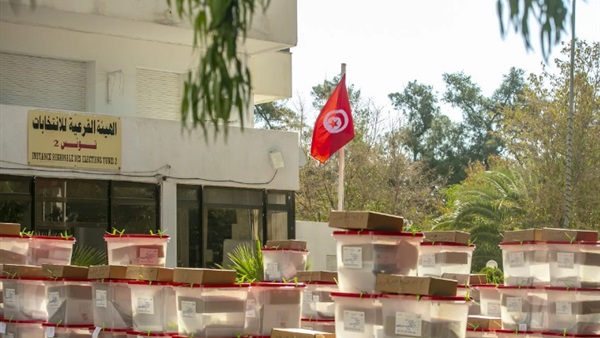Tunisia's parliament candidates start campaigning

Around 1,055 candidates in the Tunisian legislative elections launched their electoral campaigns on November 25, in preparation for the elections which are slated for December 17.
The elections will be the penultimate step to be taken by Tunisian authorities in implementing the roadmap announced by President Kais Saied in December 2021.
According to the same roadmap, Tunisia will amend its constitution and form a new parliament.
Abstentions
Steps within the roadmap come amid boycott from Tunisian opposition parties, especially the Ennahda Party, the political arm of the North African country's Muslim Brotherhood branch.
Ennahda has announced on more than one occasion its rejection of the elections.
It said it considers these elections part of what it describes as a 'coup' staged by President Saied.
Ennahda would be the movement and party most negatively affected by the elections, having been the political force dominating Tunisia's political stage before President Saied took his decisions last year.
It used to enjoy majority in the Tunisian parliament. The movement's leader, Rachid Ghannouchi, used to be the parliament speaker.
Opposing the elections is also the Free Destourian Party which is led by Abir Moussi.
This party has long been known for its hostility to the Muslim Brotherhood.
Parliament makeup
The current political tensions may have their impact on the shape and composition of the next parliament.
Tunisia suffers a state of division, not only at the level of the state and the Ennahda movement, but also at the level of the state and political parties, including liberal and secular parties which reject their marginalization.
President Saied seems to be standing alone on the Tunisian political stage, along with some members of the public who support the July 25 course.
Observers rule out, meanwhile, the possibility that the next parliament will be stable or homogeneous.
Nevertheless, they believe this parliament will be better than the previous one, regardless of how its makeup will be.
This parliament, they say, will also be better than current political conditions in Tunisia, which are opening the door for economic deterioration.







